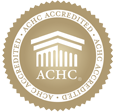Did you know that the number of hot days—and warm nights—is increasing? In the U.S., record high temperatures now outnumber record lows at least two to one.1 What can you do to protect yourself in a heat wave—or simply in the hot summer sun?
Know signs of trouble. Heat cramps are an early sign that your body is suffering from the heat—they’re more likely with heavy exercise or work. Along with muscle cramps, you may sweat heavily and feel very thirsty or fatigued.2
Heat exhaustion can happen when you lose lots of fluids from heavy sweating.3 These are a few other signs and symptoms of heat exhaustion:
- Headache
- Dizziness or feeling weak or confused
- Nausea or vomiting
- Fast heartbeat
- Cool, moist skin
- Dark-colored urine, a sign of dehydration2,4
If not treated, heat exhaustion can develop into heatstroke, which can be deadly because the body loses the ability to cool itself. Call 9-1-1 if someone shows signs of shock, becomes very confused, has a seizure, has a fever over 102 degrees F, breathes rapidly or has a rapid pulse, or loses consciousness. 2,3
Nip problems in the bud. If you have symptoms of heat exhaustion, get out of the heat as quickly as you can. Rest in a cool, shady place with your feet raised. Drink plenty of fluids, but avoid alcohol or caffeine. Apply cool compresses or take a cool shower or bath. Contact a doctor if you don’t feel better within 30 minutes.4
Beat the heat. In a heat wave, take these steps:
- Avoid taxing activities if you can.
- Stay indoors during the hottest hours of the day. The sun’s ultraviolet (UV) rays are strongest between 10 am and 4 pm.5
- If you don’t have air conditioning, go to a library, mall, or other public place to cool down for a few hours.
- Wear lightweight, loose-fitting clothing. Avoid dark colors, which trap the heat.
- Use a hat or umbrella outdoors.
- Allow your car to cool off before you get in.
- Drink water and eat small meals often. Drink less alcohol and fewer caffeinated drinks.
- Don’t take salt tablets unless your doctor tells you to.2,3,4
Protect those at increased risk. Help protect those who are most vulnerable in the heat. That includes children, older adults, and people who are obese, ill, exercising vigorously, or not used to the heat or high humidity.2 For example, make sure young ones drink plenty of water. And you might check in on your elderly neighbor once in a while.
It’s important to know that certain medicines can also increase your risk of heatstroke. This includes allergy, blood pressure, and seizure drugs as well as medicines used for mental health conditions. Let’s talk this over to make sure you stay safe and know the signs of problems. And, if you have a chronic condition, it’s a great idea to ask
your doctor about other ways to lower your risk of heatstroke. 4
Nothing herein constitutes medical advice, diagnosis or treatment, or is a substitute for professional advice. You should always seek the advice of your physician or other medical professional if you have questions or concerns about a medical condition.
Sources:
- Climate Communication: Heat Waves. Available at: https://www.climatecommunication.org/new/features/extreme-weather/heat-waves/ Accessed 5-23-16.
- MedlinePlus: Heat emergencies. Available at: https://www.nlm.nih.gov/medlineplus/ency/article/000056.htm Accessed 5-23-16.
- Healthy Roads Media: Heat Waves. Available at: https://healthreach.nlm.nih.gov/documents/EngHeatWaves.pdf Accessed 5-23-16.
- Familydoctor.org: Heat exhaustion and Heatstroke. Available at: https://familydoctor.org/familydoctor/en/prevention-wellness/staying-healthy/first-aid/heat-exhaustion-an-heatstroke.printerview.all.html Accessed 5-23-16.
- FDA: Sun Protection. Available at: https://www.fda.gov/Radiation-EmittingProducts/RadiationEmittingProductsandProcedures/Tanning/ucm116445.htm Accessed 5-23-16.

